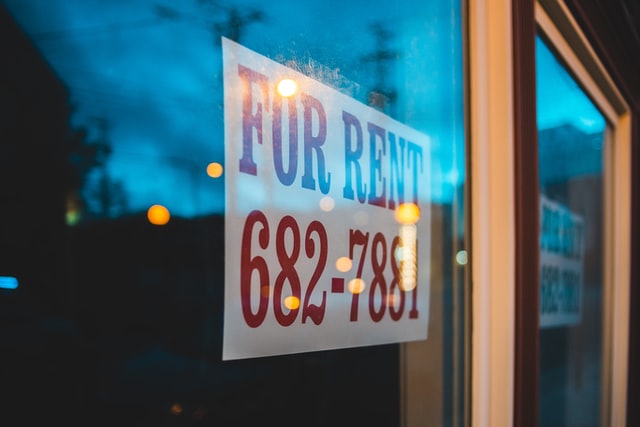First published: 16 October 2021 @ 12:21 pm

The notion of renting out your property is a hot topic for many people. After all, it is a fast and easy way to earn extra income. It can also be a way to quickly increase your cash flow if you have a spare property that you don’t need any more.
In this article, we will talk about how to make the most of renting out your property. This article will also show you how to prevent common problems when renting out your property. Let’s get started…
What You Need To Know Before Renting Out Your Property
Before renting out your property, you need to know what type of property it is and what kind of tenants you want to attract. The type of property you are renting out is important, because the type of tenants you want to attract is also important.

You will also need to consider whether your property has enough potential to rent out successfully. Before you start looking for tenants and renting out your property, it is best to do these 4 steps:
Step 1: Know Your Property
This is the first step you need to take. You need to know what your property is and what type of tenants you want to attract. If you don’t know the type of property you are renting out, it will be difficult for you to find potential tenants. For example, if your property is a house, it will be difficult for you to find a tenant who will want to rent out a house as their primary residence.
What Type Of Property Are You Renting Out?
If your property is a house, then you will need to decide whether it is suitable for renting out as a primary residence. If your property is suitable for renting out as a primary residence, then the first thing you need to do is make sure that it has enough potential to rent out successfully.
For example, if your property has 5 bedrooms and only 3 of them are currently rented out, then this may be an indication that there isn’t enough potential in the area for your property to rent out successfully.
What Is Your Property’s Potential?
If your property has the potential to rent out successfully, then you will need to find a tenant who can make use of all the bedrooms on your property. If you find a tenant who can make use of all the bedrooms on your property, then this will help increase the potential of your property and increase its rental income.
For example, if there are 4 spare bedrooms in your house and one person rents out one bedroom and uses the other 3 bedrooms as their own bedroom, this will reduce the overall potential of your house.
Step 2: Evaluate Your Property
Evaluating your property is the second step you need to take. You need to find out what is wrong with your property and what you can do to fix it. It is also important that you find out what can be done to improve the overall appearance of your property.
If you want to attract potential tenants, then you will need to make sure that your property looks good enough for potential tenants.
What Is Wrong With Your Property?
It is important that you know what is wrong with your property so that you can fix it before you start looking for potential tenants. The first thing that needs fixing is anything that can be fixed quickly and easily.
The first thing that needs fixing will depend on the type of property that you are renting out. For example, if your house has a leaking roof, then this will need fixing as soon as possible so that it doesn’t affect the overall appearance of your house.
What Can Be Done To Improve The Overall Appearance Of Your Property?
If there are any areas in which the appearance of your house could be improved, then this will help increase the potential of your house and increase its rental income.
For example, if there are some rooms in which the appearance could be improved, then you will need to find a tenant who will want to rent out those rooms. If you can find a tenant who will want to rent out those rooms, then this will help increase the potential of your house and increase its rental income.
Step 3: Find Potential Tenants

Finding potential tenants is the third step that you need to take. This is the step where you start looking for potential tenants so that you can find someone who can rent out your property successfully.
It is important that you look for potential tenants who are interested in renting out your property as their primary residence. This is because if they are not interested in renting out your property as their primary residence, then they may not be interested in renting out your property at all.
What Type Of Potential Tenants Do You Want To Find?
You will need to determine what type of potential tenants you want to find before looking for them. The type of potential tenants that you want to find depends on what type of property you are renting out and what type of tenants you want to attract.
For example, if your house has 5 bedrooms and only 3 of them are currently rented out, then this may be an indication that there isn’t enough potential in the area for your property to rent out successfully.
Step 4: Prepare the Necessary Documents
Before you start looking for potential tenants, you will need to prepare the necessary documents. The first thing that you will need to prepare is a lease agreement.
A lease agreement is important because it tells potential tenants what they can expect from your property and how much they will have to pay. It also shows them how long they can stay on your property and when they will have to move out.
The next thing that you will need to prepare is a rental agreement. A rental agreement is important because it tells potential tenants what their responsibilities are when renting out their property and what kind of security deposit they are required to pay.
Find more useful tips you can use before you begin to rent out your property on HandyWork blog!

